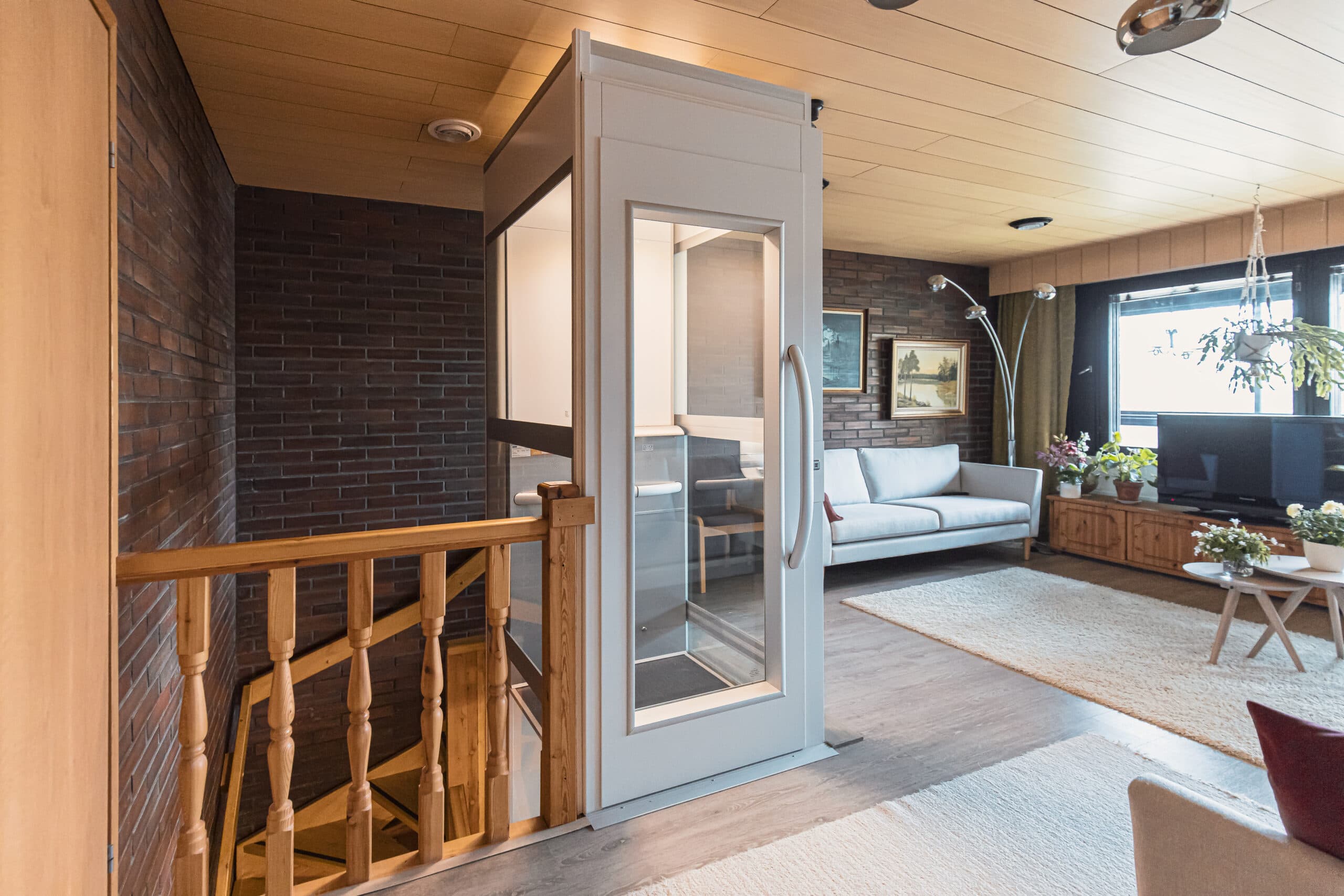Price of a home elevator
The price of a home elevator depends on several choices. A search on the internet can provide costs anywhere from $18,000 to $100,000, so how are you to even begin to understand what your home elevator might cost? An elevator in your home is a smart investment and offers you and your family a future-proof solution. Your choices affect the price, so we'd be happy to tell you more about the options.
Our home elevators
Home elevators & lifts are designed to provide transportation to surpass an architectural barrier, most commonly stairs. Most of the time they can be added within the existing footprint of the home. Some lifts & elevators can even be used outdoors. We offer different types of home elevators, differing in size, design and prices.
